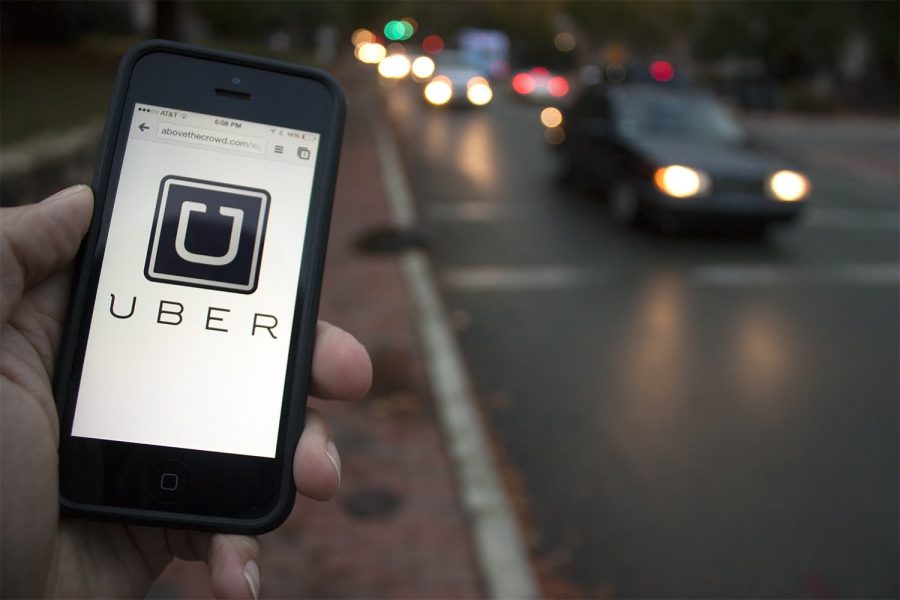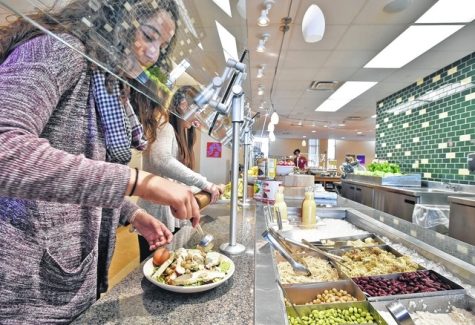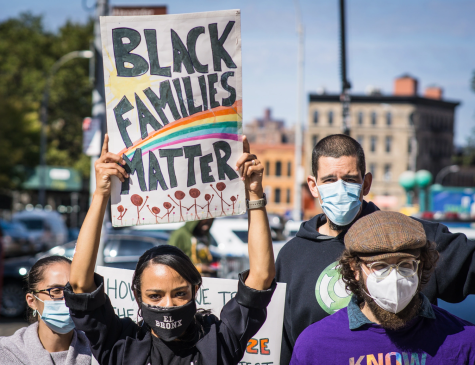Uber clarifies tipping policy: Cash or bust
May 12, 2016
When it comes to Uber, the difference between a good and bad review depends on which side of the tip you’re on.
Good for drivers, but bad for riders. Uber clarified that unbeknownst to many, it does allow riders to tip their drivers, but this isn’t a feature built into the app, like that of competitor Lyft. Nor does Uber have plans to make it one. Sure, riders are free to tip, but they have to do it with cash, which defeats the purpose of Uber’s promise to provide a “cash-free experience.”
A series of lawsuits regarding controversial company policies have revealed flaws in the six-year-old technology-based ridesharing company that has some Uber users turning their app off for good.
Most recently, the settlement of two class-action suits in California and Massachusetts challenged driver classifications as independent contractors rather than employees, forcing Uber to restate its policy on allowing drivers to accept tips.
Uber stated that nothing had changed in its policies — tips are actually not included in the cost of the fare, nor are they expected or required. While Uber alleges that it supports drivers receiving cash tips, the app doesn’t technically support tipping.
Making a special trip to the bank just to pull out a few bucks for an Uber tip is ridiculously inconvenient and highly unlikely, yet many riders have recently expressed their worries that failure to tip might mean earning a bad rider rating.
Riders are not the only one’s who can rate their travel companions; drivers can also leave ratings for their passengers, which can have a huge effect on riders’ chances of being picked up for future rides.
Affluent neighborhoods typically offer the promise of better tips, which could incentivize drivers to frequent these areas and neglect lower-income ones, said Uber in defense of its lack of a tipping feature. This may be a valid concern; however, basing entire policies off of these broad assumptions is a testament to Uber’s lack of faith in its workers.
The independent contractor status gives drivers the ability to work at their convenience, free of the constraints of a time clock. But cloaked in a guise of a no-strings-attached opportunity, it’s also a loophole that lets Uber evade providing benefits for their workers, regardless of how many hours they put in for the company.
Contracted Uber workers also pay for their own gas, insurance, wear-and-tear on their car and other expenses associated with providing the ride service, according to the California lawsuit case document.
In an April 21 update regarding the lawsuits, Uber confirmed that drivers will retain the contractor classification and will not be considered employees.
As part of the agreement, Uber will still shell out $84 million to the plaintiffs in the coming months. According to Uber, an additional $16 million will be awarded depending on valuation increases and whether the company goes public. However, unless something changed since last October when Uber CEO Travis Kalanick told CNN that Uber has no intention of going public, that’s unlikely.
According to the case document, Uber advertises that tips are included in the cost of the fare and assures riders that tips are not expected. This discourages riders from tipping and deprives drivers of the extra gratuities that the majority of other transportation services allow.
Uber takes 20 percent of the profit and allows drivers to keep the rest, which at first glance seems like a generous deal. However, when tips are incorporated into the fare, the corporation receives a share of that gratuity that would otherwise be promised solely to drivers, an implicit detail that became a large grievance in the California lawsuit.
Looking to ridesharing companies like Lyft as an example, which gives 100 percent of tips to drivers, it’s hard to understand why Uber doesn’t follow suit.
There’s no doubt that Uber has established a name for itself in the tech industry as a revolutionary start-up, but flawed policies which end in lawsuits remind us that these businesses are still juveniles. The title of Uber’s blog post about the cases was titled “growing and growing up,” and that couldn’t be more accurate.
We tip waitresses, housekeepers, delivery drivers, baristas and cashiers. As the ridesharing business reaches new heights, we should count our Uber drivers into the mix.
















